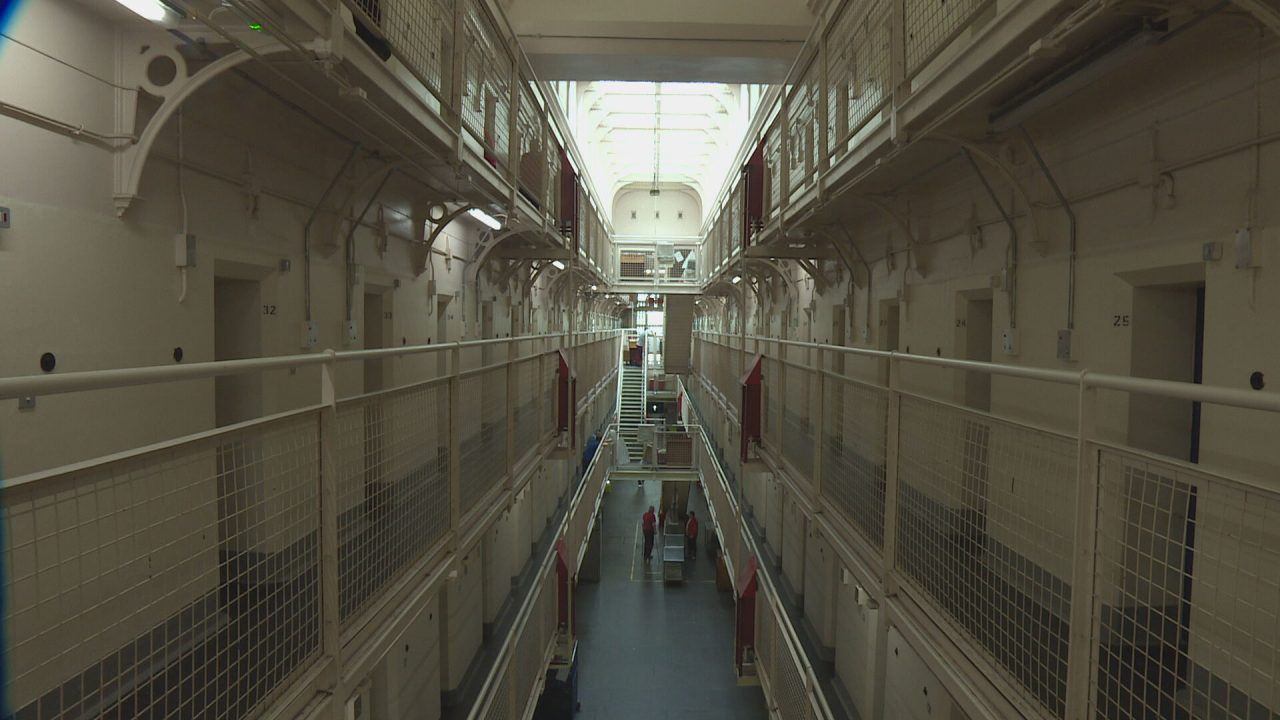Inspectors have described Scotland’s largest prison as being in a “wretchedly poor state” following a review which also found the facility to be over 30% above its capacity.
HM Inspectorate of Prisons for Scotland (HMIPS) said it “strongly urged” the Scottish Government to do more to tackle the “fundamental problem” of overcrowding at HMP Barlinnie in Glasgow following a week-long inspection last November.
HMIPS noted nearly two thirds of prisoners were sharing cells designed to hold only one person during its assessment of the 143-year-old facility and said this factor could also account for a pre-inspection survey finding a high number of prisoners complaining about the behaviour of staff.
The survey found more than half of prisoners had witnessed staff “abusing, bullying, threatening or assaulting” another prisoner, according to HMIPS, which it described as a “serious cause for concern”.
The Scottish Government has already committed to building a new prison to replace Barlinnie on the outskirts of Glasgow which is set to cost nearly near £1bn.
It is expected to be built by 2028 – years behind the initial schedule.
MSPs also passed legislation in November 2024 so that those sentenced to under four years in prison will be released after serving 40% of their sentence.
HMIPS said in its report: “The need for a replacement prison through the planned new HMP Glasgow remains overwhelming and urgent.
“The other deeply concerning factor was the unacceptable level of overcrowding.
“Designed for single occupancy, at the time of our inspection, the prison was more than 30% above its design capacity, with almost two thirds of prisoners having to share cells designed for one person.
“Overcrowding makes it harder to access basic entitlements. It also makes it harder for staff to build and retain positive relationships, and the additional daily transactional work in dealing with more prisoners than a prison is designed to accommodate can put a strain on services and relationships.
“That may, in part, explain the most worrying aspect of our pre-inspection survey, where more than half (55%) of prisoners said they had witnessed staff members abusing, bullying, threatening or assaulting another prisoner, and 42% reported that staff had abused, bullied, threatened, or assaulted them.
“Inspectors never witnessed any unacceptable behaviour and, indeed, observed staff engaging prisoners in cheerful but respectful light-hearted banter, but these results were worse than for other closed prisons and gave serious cause for concern.
“We encourage the prison to reflect further on the survey findings.”
A Scottish Prison Service spokesperson said: “We welcome this report from HMIPS, which highlights the excellent support for first-time offenders upon arrival into custody, lifesaving Naloxone training, efforts to encourage people back into education, and the groundbreaking healthy dads, healthy kids programme, as well as some of the challenges the establishment faces.
“The Scottish Prison Service takes a zero-tolerance approach to bullying and, while we note inspectors did not witness bullying but rather found staff to be engaging and respectful to people in the care of HMP Barlinnie, we are not complacent and are committed to developing a new strategy later this year after drawing on external expertise.
“We have been managing an extremely high and complex population for more than a year, and this puts pressure on everyone living and working in our establishments.
“Staff work hard to maximise opportunities for rehabilitation, education, and other activities out of cells, to support people’s personal journeys, reduce the risk of reoffending, and help create safer communities. However, this is challenging given the population pressures faced.”
Justice Secretary Angela Constance welcomed the inspectorate’s finding that Barlinnie is a “safe, stable, well-run prison”.
She added: “I recognise, however, the need for a replacement, which is why a contract was signed in January to build the new HMP Glasgow. It will increase prison capacity, transform how prisoners are rehabilitated, improve staff working conditions and generate up to £450m worth of economic benefits.
“Like the rest of the UK, we continue to experience a significant rise in the prison population, and we have taken actions to tackle this which were essential to improve conditions within prisons. Whilst prison will always be appropriate for those who present the greatest risk to the public, our longstanding aim is to encourage more widespread use of community disposals where appropriate.
“We are investing an additional £25m over two years to support community justice services to further strengthen alternatives to custody, which can be more effective in reducing reoffending than short term custodial sentences.”
Follow STV News on WhatsApp
Scan the QR code on your mobile device for all the latest news from around the country




























